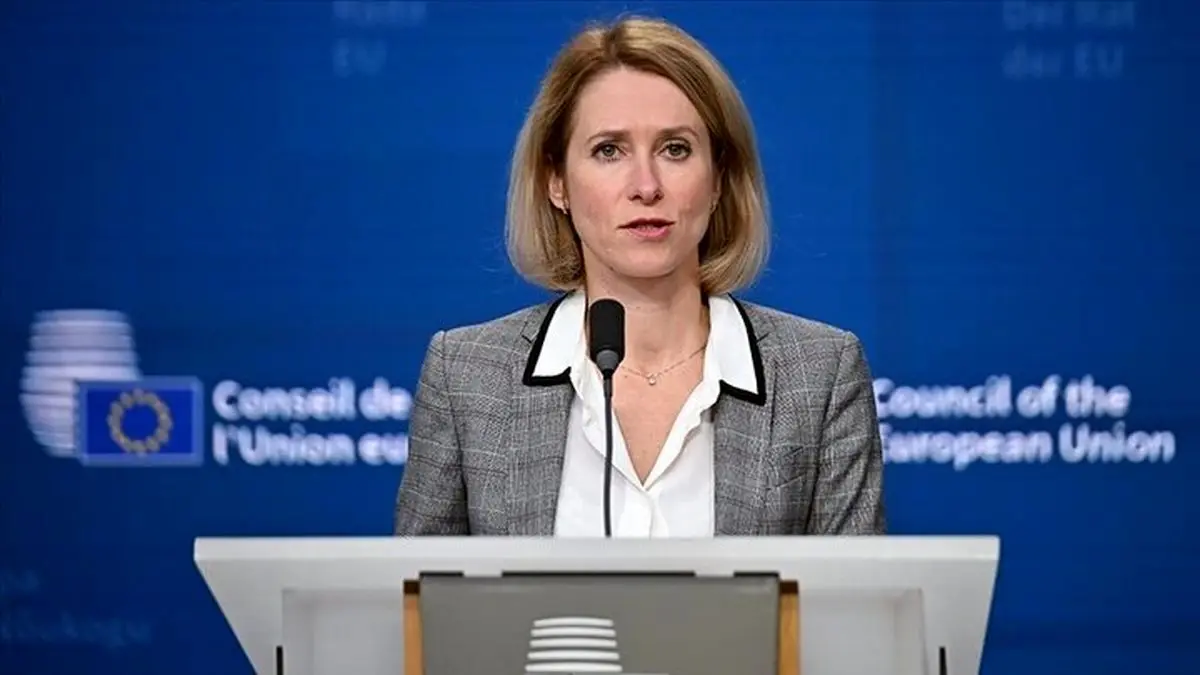SAEDNEWS: The Iranian Foreign Minister, in a letter to the EU’s foreign policy chief, outlined key points regarding the current status of the JCPOA and the dispute resolution mechanism stipulated in this international agreement.

According to Saed News; Seyed Abbas Araghchi, Minister of Foreign Affairs of the Islamic Republic of Iran, in an official and documented letter sent today to Kaja Kallas, High Representative of the European Union for Foreign Affairs and Security Policy and coordinator of the JCPOA Joint Commission, elaborately responded to the letter dated 18 August 2025 concerning issues related to the Joint Comprehensive Plan of Action (JCPOA) and the dispute resolution mechanism, and outlined key points regarding the current status of the JCPOA and the dispute resolution mechanism stipulated in this international agreement.
At the beginning of the letter, Araghchi expressed regret over the selective and incomplete narrative of the EU letter, reminding that it neglected to mention essential facts and procedural precedents related to the JCPOA and UNSC Resolution 2231, and ignored the chronic disregard of the European Union and the three countries—France, Germany, and the United Kingdom—towards their obligations.
The Minister of Foreign Affairs of the Islamic Republic of Iran, while reiterating his previous positions as extensively stated in his letters dated 22 July and 22 August 2025, emphasized that the mentioned three European countries have no legal legitimacy or competence to resort to the dispute resolution mechanism or to activate the automatic reimposition of sanctions. He added that these positions have also been supported by the Russian Federation and the People’s Republic of China, referring to the official explanatory notes submitted by these two countries to the Security Council on 11 and 19 August 2025.
Araghchi, while referring to the long-standing background of activating the dispute resolution mechanism by the Islamic Republic of Iran, clarified that Iran was the first party to the JCPOA to activate this mechanism in reaction to the U.S. withdrawal from the agreement and the failure of the EU and the E3 to fulfill their commitments.
In rejecting the claim that the activation of the mechanism was limited to two formal cases in 2020, he pointed to Iran’s resort to this mechanism in his letter dated 10 May 2018 and the holding of multiple Joint Commission meetings on 25 May and 6 July 2018, which took place before Iran began its remedial measures. He stressed that ignoring these precedents invalidates the EU’s arguments.
Subsequently, the Iranian Foreign Minister declared that the Islamic Republic of Iran had pursued the dispute resolution mechanism in good faith and to the point of full exhaustion, and is therefore entitled to take remedial measures. He added that the claim of activation of the mechanism by the E3 in 2020 was explicitly rejected by Iran, Russia, and China, and that this move never proceeded to full exhaustion. It was deemed unjustified and unacceptable, being in the nature of a “remedial measure against a remedial measure,” taken in response to the legitimate remedial actions of the Islamic Republic of Iran.
Araghchi also described the EU’s depiction of adherence to JCPOA commitments as lacking any firmness or legitimacy. He reminded that despite the suspension of certain sanctions in 2015, Europe not only failed to fulfill its obligations regarding the normalization of trade and economic relations with Iran, but also violated the agreement; including by failing to implement the JCPOA “Transition Day” commitments on 18 October 2023, expanding sanctions against Iranian civilian individuals and entities, and reimposing sanctions on Iranian airlines, shipping companies, vessels, and ports. He emphasized that the eleven supplementary commitments made by Europe after the Foreign Ministers’ meeting on 6 July 2018 were also never implemented.
The Iranian Foreign Minister pointed to the inefficiency of the INSTEX mechanism as an insufficient and merely symbolic initiative that never resulted in any significant volume of transactions. He also attributed the failure of the Vienna talks in 2021 and 2022 to the obstinacy of the United States, its domestic political considerations, and the linking of the negotiations to unrelated issues by the E3 and the EU.
In another part of the letter, Araghchi strongly criticized the EU’s positions regarding the illegal attacks by the United States and the Zionist regime against Iran’s nuclear facilities, which constitute a clear violation of the UN Charter and international law, accompanied by the E3’s support through arms supply and public endorsements. He stated that these actions further undermine Europe’s goodwill. He also referred to the remarks made by Mrs. Kallas about the “ending of Iran’s nuclear program,” which contradict the fundamental bases of the JCPOA, and considered this matter damaging to the EU’s role as an objective and impartial coordinator.
In conclusion, Seyed Abbas Araghchi stressed that any attempts by the E3 to revive the UN Security Council resolutions that were terminated under Resolution 2231 (2015) are invalid and ineffective, and that this resolution must expire according to its timeline on 18 October 2025. He called on the EU to refrain from selective interpretations and to make efforts to facilitate genuine diplomacy and preserve multilateralism. The Islamic Republic of Iran also once again declared its readiness to resume fair and balanced diplomatic negotiations, provided that the other parties demonstrate seriousness and goodwill, and refrain from destructive measures that undermine the prospects of successful talks.
This letter was also copied to the Secretary-General of the United Nations, the current President, and members of the Security Council.

